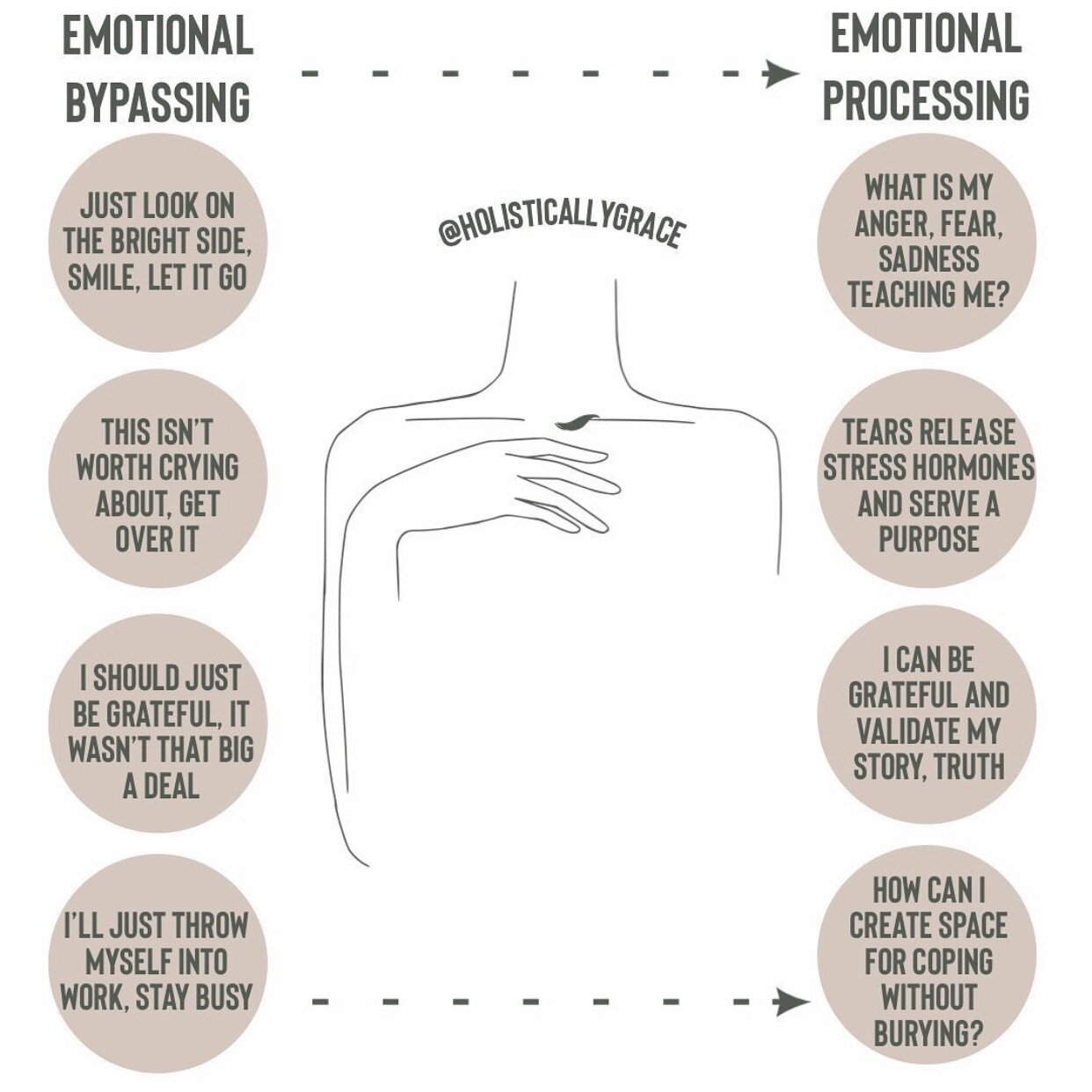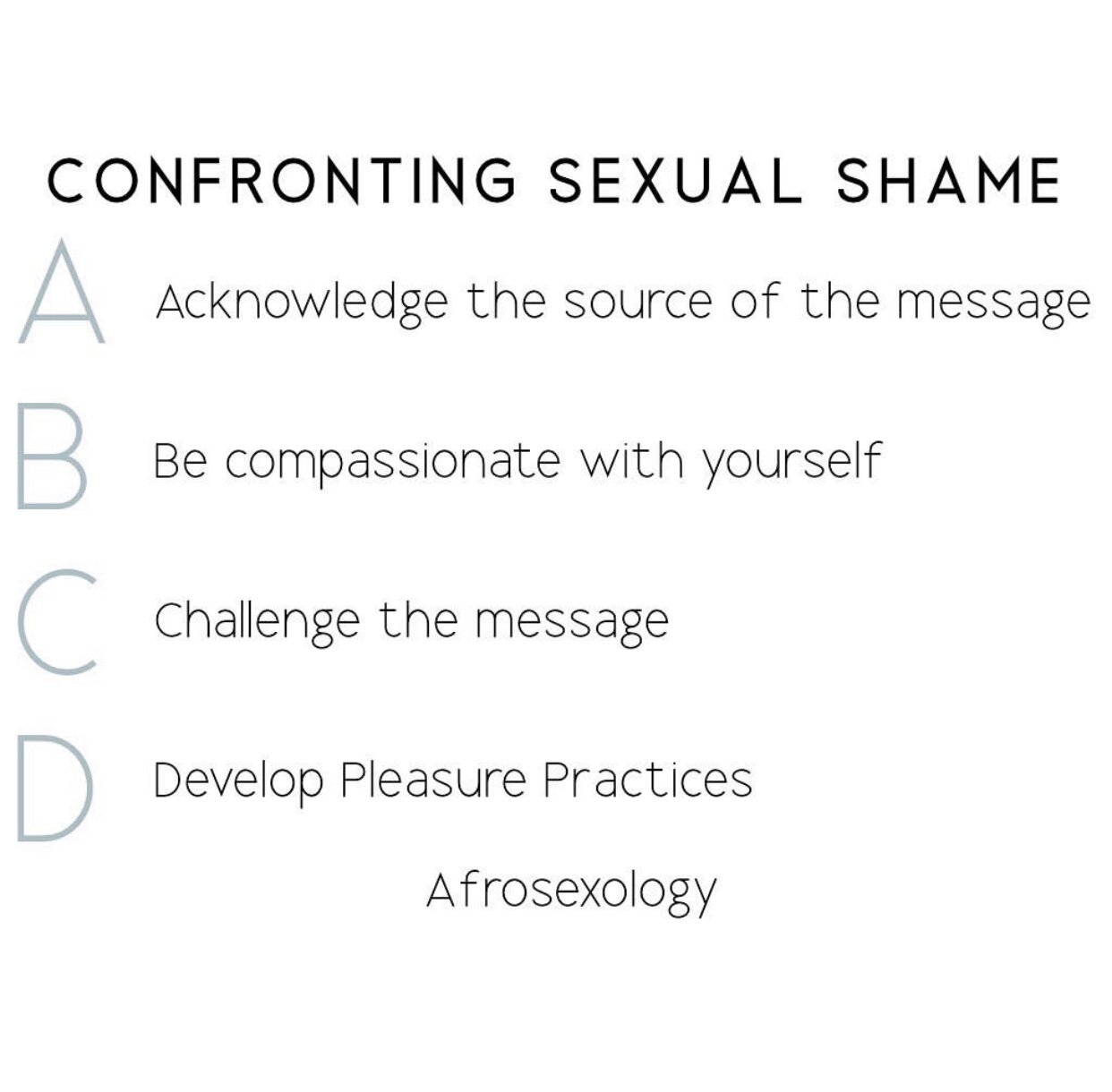7 Ways to Deal With The Pain of Sexual Shame
Photo by Gage Walker on Unsplash
13-minute read
CW: the follow article includes descriptions of shame.
Imagine learning each day that someone like you is so undesirable and that your body is broken, abnormal, too difficult, unattractive or gross. Imagine hearing that on dating sites other peoples biggest fears were connecting with a person with your experience and only realising when it was too late. Imagine spaces and places you move through each day that never considered your body or experience when they were designed and built and so you struggle to access the places that bring you joy, pleasure and connection. Imagine reading books and seeing movies with plot lines that revolved around hating on your body and your experiences. Imagine hearing your friends laugh and joke about another who shares a similar experience to you. Imagine your whole worth is based on one experience or quality defined as unacceptable or undervalued by others and feeling rage, fear or hopelessness each time you attempted to connect with another.
Having depression, anxiety, being disabled, having a chronic illness, being fat or having a larger body, being a Black person or a person of Colour, having erection challenges, feeling pain during sex, not being able to orgasm, wanting to masturbate, being trans, being intersex, not wanting to have sex or being asexual can leave people feeling ashamed, unworthy or undeserving of connection, desire, love and pleasure. Given that all these experiences and identities are worthy, valid and common, why do they so often lead to intense shame and despair?
One answer may be because they’re not considered the norm or fall outside the social script and therefore people who share these experiences are rejected from society and deemed an unfixable problem.
Sexual shame hurts
Shame leaves people feeling like they’re not good enough, they’re selfish or unworthy and undeserving of pleasure. They may wonder whether anyone else could possibly ever understand them. They might fear that no one could accept them because there’s a part of themselves that’s been made to feel wrong, weird or abnormal and that they must change, or at best, hide, even when doing so can feel worse. Shame says we must keep that part of ourselves secret. Yet without secrecy, shame cannot live.
At some point in their lives, most folx will experience shame around their bodies, their sexuality, their sexual experiences or their pleasure. Sexual shame is often said to be a universal experience and something that most endure to at some point in their lives; despite the experience of shame being hugely different for each person.
Shame impacts mental and emotional wellbeing; it leads to eating disorders and mental illness. It can result in panic attacks, self-harm, suicide or violence. It might lead to policing, punishing or controlling oneself and restricting all pleasure or satisfaction and it often leads to resentment of self and others. Left unchecked, shame can become one of the biggest killers and can take the greatest toll on lives.
Given the seriousness of shame, why aren’t we talking about it? Why aren’t we challenging it? And why do so many of us trying to deal with our suffocating shame alone?
This image by @jayda_kissed can help demonstrate the complexity of shame through creating biased expectations and scripts that people must adhere. This example illustrates the cross cultural expectations for an Asian person who was assigned female at birth. They highlight the many expectations and scripts placed on them that they must adhere to in order to be accepted in this world. It also highlights the serious impact it has on their wellbeing, relationships and experience.
How and where did you learn sexual shame?
Often times the biggest sense of relief comes from identifying that shameful thoughts and beliefs didn’t come from within you. Instead, they’re absorbed from the spaces you live in and the culture you swim in. Shame evolves from the social messages and rigid expectations and scripts we learn we must adhere to and the cultural and religious beliefs we’re indoctrinated within. Shame makes itself known through our past experiences and in many of our relationships.
It balloons from systems of power and oppression that recognise the potential in weaponising shame as a way to control and subdue its members. It shames people for not working hard enough so they push harder; for not being good enough or attractive enough and comes up with the solutions in the form of products that it can sell back to them. It becomes a cycle that keeps people stuck in an inescapable social loop of intense mental, physical and emotional torture and so we’re always looking out for the next best thing to offer us some temporary relief.
Sometimes this comes in the form of diets or weight loss supplements, personal trainers, prescription medication, numbing creams, new clothes, new tech, alcohol and drugs, injectables, cosmetic surgery, makeup - whatever it may be to help soothe that pain of not feeling good enough.
The intensity of the shame most folx experience makes sense. We live in a society that is deeply uncomfortable with sex, pleasure and diverse bodies and that discomfort is reflected through the lens we see the world and what we expect of ourselves and others.
Shame has deep roots because it has often had years to grow into multiple areas of our lives while remaining unchecked. Because shame is so hard to sit with, a dire amount of emotional bypassing takes place and even feeling shame leads to more shame. Only through exposing the source of shame, gradually and in safe spaces, can we defuse and decrease its hold.
This post by @holisticallygrace illustrates why shame can so easily build up over and grow deep roots over time. The most common way we’re taught to deal with difficult feelings is to avoid them. However, by working towards emotional processing, we’re better able to deal with shame and other challenging feelings and release it from our bodies.
What’s the purpose of shame?
What if feelings were messengers that were trying to tell you something? What if you spent time trying to work out what they were trying to let you know? What do you think shame is trying to say? What purpose might it serve? How could it be trying to help you?
If you’re open to shame's message, you might learn a thing or two about yourself and the culture you live in. For instance, shame often helps us recognise what our boundaries are and lets us known when they’ve been crossed. This often comes down to someone else doing something to us that we did not want or pushing ourselves in a way that we did not want because we thought we had to.
People often feel shame when they diverge from social expectations or scripts. Therefore, shame might be a way of returning to the norm, even if those expectations perpetuate further harm. Shame could be seen as a motivator that’s trying to help us do and be better according to the rigid standards and expectations we feel we should be meeting. This too is learnt from the way social systems teach us and are reinforced as the most effective method for being better. This concept becomes the frame of reference for how everyone else should behave. We may find ourselves applying these same standards onto others in our lives for this same reason.
What does it mean to be a person with your unique experience? How are people treated who have a different experience or whose experience falls closer to the dominant narrative or standard? Or who has a body that looks and functions in a way that is considered desirable by this standard?
We learn that those who fit the mould are more likely to be valued, respected, included - they’re more likely to get the job, the income, the house, the partner, the love. They’re less likely to be challenged or discriminated against. They’re more likely to be believed. They’re more likely to be chosen and being chosen is an important part of survival because it means being part of a group and being connected. We are social beings and connection is a basic need and without it, we will die.
Understanding this can help us recognise why we can’t stop thinking about the ways we’re different and how we can be more similar to everyone else (even when the reality is that everyone is so diverse and a lot of the challenges we face, they face too.
When we learn that folx whose bodies function or look a certain way or experience a certain thing are rewarded for it, it makes sense why we would want that same thing. Especially if we have been shamed, or excluded because of our perceived differences or perceived abnormalities.
People are into different things. People have different bodies. People define pleasure differently. If there are so many differences, why are we all held to the same standards and taught that we should follow the same scripts?
What if shame was actually a normal response to a culture that says you’re weird or there’s something wrong with you for having a different experience? What if you didn’t have to change yourself because it’s not a problem with you, it’s a problem with this culture?
Regardless of what we’ve been taught or what our brains think, shame is one of the most ineffective motivators, in the same way an abusive coach that yells at you and tells you you’re a shit human will be unlikely to make you perform any better. Instead, it might make you doubt yourself, leave you thinking what a bastard they are, how much you might hate being there and leave you feeling like you want to give up. If shame worked then we’d already been much closer to the standard or fit the mould we think we should.
Now think of a mentor that recognises your strengths and encourages you gently and sometimes firmly to move in the right direction. You know that whatever it is you’re doing doesn’t actually define who you are because your mentor continues to remind you you’re worthy regardless of whether things go to plan or not and you have space to make mistakes. Sometimes those mistakes are the only way of figuring out what works and doesn’t work for you. This is self-compassion, kindness and acceptance. It’s often an approach we never learn because in and of itself it can be powerful.
7 ways to unlearn shame
The ABCD’s of confronting sexual shame by @afrosexology outlines a useful pathway of dealing with shame.
Unlearning shame is a process and in many cases its life long. If you’ve made it this far, you’ve probably spent a good portion of your life embodying shame. It might just take that long to unlearn those messages and replace them with more accurate ones.
The first place to start is to challenge the messages that keep you trapped and identify their sources. Just because you have a thought about something, it doesn’t mean its true and it doesn’t mean you have to believe it. Be curious about possible alternatives to these beliefs and expectations. For example, is porn use, masturbation, exploring your body when you’ve been taught you shouldn’t harmful in every instance? Are there times when these experiences might be beneficial for people and the relationships around them? For mental and physical health? For reducing expectations on others? For being able to cope with stress or difficult times? Think of those beliefs as your hypothesis, assumptions or interpretations.
Hypotheses are only theories and they need to be checked and challenged to make sure they’re accurate. Notice each time an assumption is made and name it as your interpretation. Is there a kinder explanation you can think of that might also fit? If it’s hard to think about yourself in that context, why not think a friend in the same situation.
Recognise the serious impact shame has had an on your life; your wellbeing, your pleasure, your relationships and decide to be a little bit kinder to yourself because now you know these beliefs are not your own. Remember, you weren’t born with shame. It’s an insidious thing that slowly creeps into your life and subdues you quietly, often without your knowledge or consent. Remind yourself that it’s okay to feel shame, almost everybody does and it’s not your fault. These ideas and beliefs are not your own but something you picked up along the way and because they’re learned, they can be unlearned.
Recognise the “shoulds”. When you notice you think you should do something, take a step back. A should thought or response often highlights expectations or pressure to do something. It also indicates that maybe there is a mould or script you believe you must adhere to.
Often this is because there is a real or perceived consequences for not doing so. Naming these can help you challenge them and allows you the space to ask “what do I actually want?”
Working out what you want rather than what you think you should do can help you set and enforce your boundaries. Boundaries are a way of keeping shame at bay by sharing what you want and don’t want with others and making it clear to yourself what’s okay and what’s not. When you have this information you’re able to know what triggers feelings of shame and what you can do that might help you feel better.
Figure out what helps you feel better when you’re in a shame spiral or feeling bad. Do you need to problem solve? Do you want empathy and connection? Or do you want a distraction? Work out what might help you shift away from those shameful thoughts and feelings and do more of that. Sometimes this will look like naming and sitting with shame until is passes and then doing something you enjoy. Other times the thing that helps best is to distract yourself or find someone else to talk to until you feel like you can cope again.
Allow yourself to experience pleasure in the spaces and places you feel shame. Feeling pleasure or satisfaction despite challenges you may be facing can act as a counterbalance against shame. Identify the places in your body that feels shameful and notice whether it’s possible to feel pleasure there.
Sometimes it can be difficult to make time for pleasure, especially if you’ve been bunking with shame for years or if it resides deep within you. A good place to start is to recognise the benefits of all sorts of pleasure and pay attention to how small pieces of pleasure make you feel.
Deciding to experience pleasure, especially if you’ve been told that your body is not deserving of that pleasure, is a powerful way to challenge or resist those notions. Remind yourself that every single body is made to experience pleasure, including yours. It’s up to you to define what pleasure looks like for you and it’s okay if this looks different from what you’ve been told is “good” and “bad” forms of pleasure. Resisting this binary is part of the work in breaking the cycle and challenging the norm.
Taking a risk and being vulnerable with others breaks the hold shame has when its kept as secret business. Your act of courage in sharing your experience can make it easier for someone else to share their own. Increase your support community.
Look for online groups that speak positively and supportively about what you’re going through or similar. Seek out a sex therapist or a counsellor. Search for sex and pleasure positive friends or communities. Read books by authors with your lived experience or who get what’s going on for you.
Part of this is acknowledging, even to yourself, that it’s okay to be a person with your identity or your experience and that there are other pretty great people that share similar qualities to you. Increasing your access to bodies that represent you or who share experiences similar to your own can help you realise that you can still be an attractive, deserving and worthy person as you are, without changing.
Mostly, be open to keep on naming, challenging and unlearning exclusive messages, ideas and beliefs that leave you feeling shame, rage or hurt. Remind yourself that you are not alone in your fight and in your experiences. If you’re not ready to challenge your beliefs for yourself, consider the impact it could have on someone else and do it for them.




